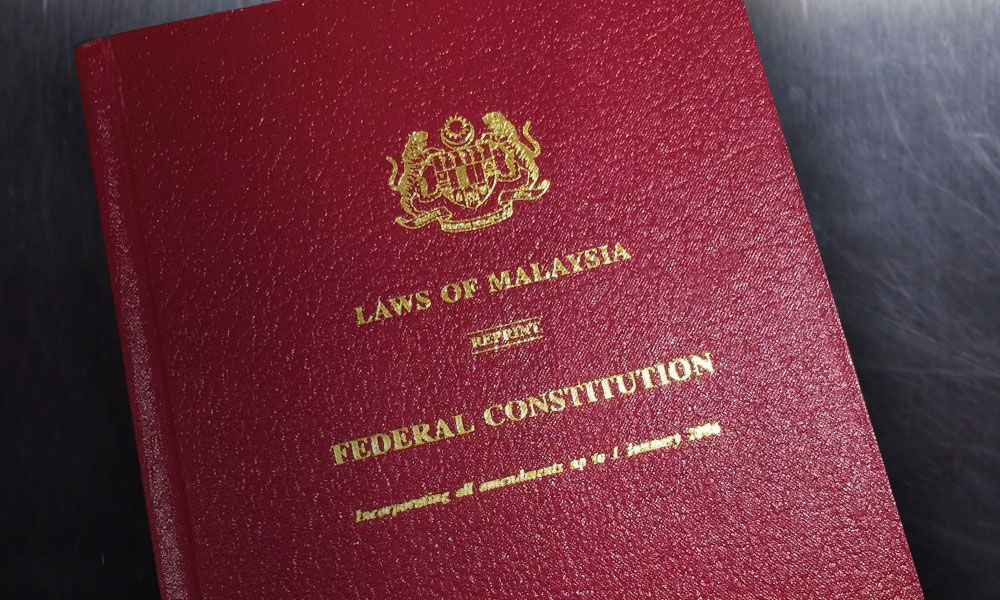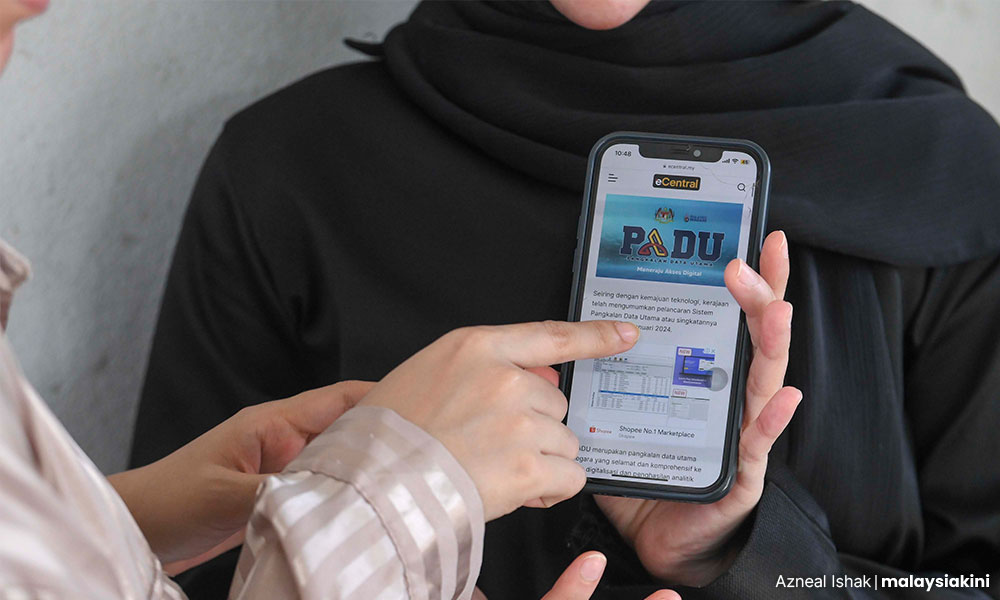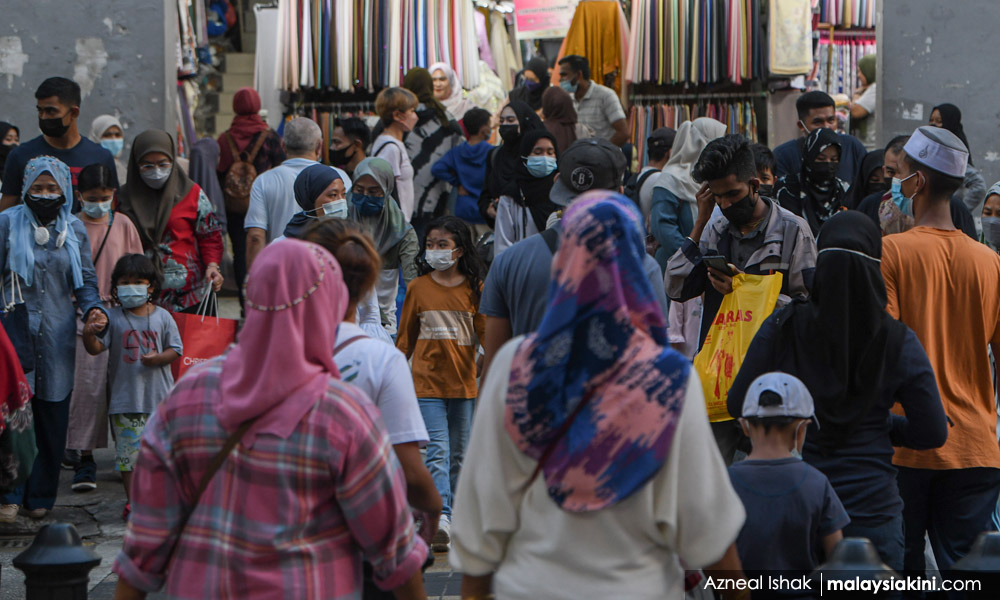Controversy has once again erupted over Article 153 of the Federal Constitution, this time brought to attention by the Johor Indian Business Association (Jiba).
The association had urged the government to provide business opportunities to all companies, not just bumiputera companies.
This statement was in response to the latest tweak of the approved permit policy related to vehicle importation and sale.
In his appeal, Jiba president P Sivakumar said that “[t]he government must show a level playing field and ensure fair play by opening up the sector to non-bumiputera companies”.
This plea for fair play is not a new one. It has been constant and unceasing in education, trade, business, and employment where Article 153 has been in operation.
The elephant in the room
Initially implemented in the areas of economy and society where Malay and bumiputera participation were seen as lagging by the Reid Commission drafting the nation’s constitution, there has since been a proliferation in the imposition of racial quotas and other forms of preference to “safeguard” the Malay special position.
These policies in effect have meant excluding or discriminating against non-Malay participation, although Article 153 has a balancing provision expressing the need for “the safeguarding of the legitimate interests of the other communities” in its implementation.
Proponents of the need for a review and change in Article 153 note that successful Malay development in the sectors identified in 1957 as requiring special reservation or assistance implies that such racially skewed preferential policies are no longer necessary.
They also argue that these policies are the biggest elephant in rumah Malaysia holding back the nation’s economic potential and progress, social cohesion, and national unity.

Those supporting the article argue that Malay development is trailing behind that of other communities and that racial preference policies are still necessary in education, employment, economy, and society.
Given the deep divide on Article 153, is there any way of arriving at a review that is fair, rigorous, transparent, and which might be able to provide our policymakers and political leaders with data and findings on its costs and benefits, and the way forward in its reformulation and reform?
I had earlier posited that a royal commission of inquiry can provide such a review. The deafening silence greeting this proposal indicates that an RCI may be a non-starter.
There is a less contentious method that can perhaps gain wider support and which is also more quickly and easily implemented.
Article 153 data bank
Key to this review is the establishment of a data bank in the fields of education, economy, and society where Article 153 has been in operation, the number of participants or beneficiaries that have been able to take advantage of the specific programmes, the cost, etc.
The establishment of what can be referred to as the Article 153 data bank should not be a problem as it can draw from existing data sets from the Statistics Department and the private sector.
Such a data bank can provide the authorities, as well as other stake players, stakeholders, and the public, with the statistics and other empirical information to assess the outcomes and failure or success of the programmes; and to consider the changes necessary - including the possibility of cessation - to further our national development and progress.

Besides providing relevant data on the record of success or failure in safeguarding the special position of the Malays and other bumiputera, the database can also inform on the extent to which the provision on the protection of the legitimate interests of the non-bumiputera or natives of Sabah and Sarawak in all the specified policy areas has been honoured.
Correction and reformulation of Article 153 can lead not only to better outcomes for the deserving and the bottom 40 percent of society, the younger generation especially will benefit from a level playing field that rewards hard work, ability, and talent irrespective of race in all aspects of their life when so much in the world has changed since the constitutional provision was put in place.
Finally, it is necessary to emphasise that members of the Reid Commission as well as the political leaders of the independence period had envisaged the review and possible discontinuation of racial preference policies after 15 years. We are now more than a half-century after that due review date.

Reference
The current iteration of the article following the establishment of Malaysia reads:
Article 153
(1) It shall be the responsibility of the Yang di-Pertuan Agong to safeguard the special position of the Malays and natives of any of the states of Sabah and Sarawak and the legitimate interests of other communities in accordance with the provisions of this Article.
(2) Notwithstanding anything in this Constitution but subject to the provisions of Article 40 and of this Article, the Yang di-Pertuan Agong shall exercise his functions under this Constitution and federal law in such manner as may be necessary to safeguard the special provision of the Malays and natives of any of the states of Sabah and Sarawak and to ensure the reservation for Malays and natives of any of the states of Sabah and Sarawak of such proportion as he may deem reasonable of positions in the public service (other than the public service of a state) and of scholarships, exhibitions, and other similar educational or training privileges or special facilities given or accorded by the federal government and, when any permit or licence for the operation of any trade or business is required by federal law, then, subject to the provisions of that law and this Article, of such permits and licences.
(3) The Yang di-Pertuan Agong may, in order to ensure in accordance with Clause (2) the reservation to Malays and natives of any of the states of Sabah and Sarawak of positions in the public service and of scholarships, exhibitions, and other educational or training privileges or special facilities, give such general directions as may be required for that purpose to any commission to which Part X applies or to any authority charged with responsibility for the grant of such scholarships, exhibitions or other educational or training privileges or special facilities; and the commission or authority shall duly comply with the directions.
(4) In exercising his functions under this Constitution and federal law in accordance with Clauses (1) to (3), the Yang di-Pertuan Agong shall not deprive any person of any public office held by him or of the continuance of any scholarship, exhibition, or other educational or training privileges or special facilities enjoyed by him.
(5) This Article does not derogate from the provisions of Article 136.
(6) Where by existing federal law a permit or licence is required for the operation of any trade or business, the Yang di-Pertuan Agong may exercise his functions under that law in such manner or give such general directions to any authority charged under that law with the grant of such permits or licences, as may be required to ensure the reservation of such proportion of such permits or licences for Malays and natives of any of the states of Sabah and Sarawak as the Yang di-Pertuan Agong may deem reasonable and the authority shall duly comply with the directions.
(7) Nothing in this Article shall operate to deprive or authorise the deprivation of any person of any right, privilege, permit, or licence accrued to or enjoyed or held by him or to authorise a refusal to renew to any person any such permit or licence or a refusal to grant to the heirs, successors or assigns of a person any permit or licence when the renewal or grant might reasonably be expected in the ordinary course of events.
(8) Notwithstanding anything in this Constitution, whereby any federal law any permit or licence is required for the operation of any trade or business, that law may provide for the reservation of a proportion of such permits or licences for Malays and natives of any of the states of Sabah and Sarawak; but no such law shall for the purpose of ensuring such a reservation -
(a) deprive or authorise the deprivation of any person of any right, privilege, permit or licence accrued to or enjoyed or held by him;
(b) authorise a refusal to renew to any person any such permit or licence or a refusal to grant to the heirs, successors or assigns of any person any permit or licence when the renewal or grant might in accordance with the other provisions of the law reasonably be expected in the ordinary course of events, or prevent any person from transferring together with his business any transferable licence to operate that business; or
(c) where no permit or licence was previously required for the operation of the trade or business, authorise a refusal to grant a permit or licence to any person for the operation of any trade or business which immediately before the coming into force of the law he had been bona fide carrying on or authorise a refusal subsequently to renew to any such person any permit or licence, or a refusal to grant to the heirs, successors or assigns of any such person any such permit or licence when the renewal or grant might in accordance with the other provisions of that law reasonably be expected in the ordinary course of events.
(8A) Notwithstanding anything in this Constitution, where in any university, college, and other educational institution providing education after Sijil Pelajaran Malaysia (SPM) or its equivalent, the number of places offered by the authority responsible for the management of the university, college, or such educational institution to candidates for any course of study is less than the number of candidates qualified for such places, it shall be lawful for the Yang di-Pertuan Agong by virtue of this Article to give such directions to the authority as may be required to ensure the reservation of such proportion of such places for Malays and natives of any of the states of Sabah and Sarawak as the Yang di-Pertuan Agong may deem reasonable, and the authority shall duly comply with the directions.
(9) Nothing in this Article shall empower Parliament to restrict business or trade solely for the purpose of reservations for Malays and natives of any of the states of Sabah and Sarawak.
(9A) In this Article the expression “natives” in relation to the state of Sabah or Sarawak shall have the meaning assigned to it in Article 161A.
(10) The Constitution of the state of any ruler may make provisions corresponding (with the necessary modifications) to the provisions of this Article.
(See pp 123-5 of the Federal Constitution.)
Postscript
This is the first of a two-part commentary on Article 153. A close friend provided the feedback below to the draft. The second part details how to operationalise the data bank and will also deal with his concerns and those expressed by readers reacting to this commentary.
Anthony James: “… a review that is fair, rigorous, and transparent …” - good enough.
These are the standard adjectives to ensure a defensible, untainted work product. There is a second even more crucial part: timely implementation of the work product’s recommendations.
“Timely” is a crucial word. “Implementation” no less crucial.
Bureaucracies, aided and abetted by political forces, are notorious for killing recommendations in reports by simply dragging their feet. Not providing funding for implementation is another weapon of choice. Beware of wars of attrition.
Enforceable provisions for implementation are crucial. That can be a quagmire. - Mkini
LIM TECK GHEE is an economic historian and analyst with extensive experience in the field of bumiputera equity ownership.
The views expressed here are those of the author/contributor and do not necessarily represent the views of MMKtT.




No comments:
Post a Comment
Note: Only a member of this blog may post a comment.